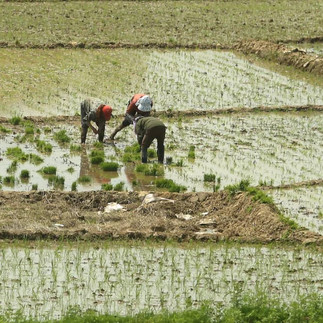President Bio Urges UN to Address Hunger as Security Threat
- Grace Bangura

- Nov 25, 2025
- 2 min read

Sierra Leone's President, Dr. Julius Maada Bio, has formally requested the United Nations Security Council to reclassify food insecurity from a secondary humanitarian concern to a primary issue of global peace and security. During a high-level debate focused on conflict-related hunger, he characterized starvation as "a form of violence, slow, silent, and corrosive," which systematically destabilizes international order.
"Sustainable peace cannot be achieved on an empty stomach," he asserted, emphasizing that deliberate starvation constitutes a direct breach of international law, rather than an incidental outcome. President Bio specifically referenced UN Resolutions 2417 and 2573, the Geneva Conventions, and the Rome Statute, which explicitly prohibit the starvation of civilians, noting, however, that current enforcement and compliance mechanisms remain inadequate.
He detailed how, in many conflict settings, food systems are intentionally targeted: farmlands are destroyed or rendered inaccessible, livestock is seized, markets are closed, and food prices are artificially inflated beyond affordability. Citing ongoing crises in Gaza, the Sahel, Sudan, Ukraine, and parts of Haiti, he underscored that widespread hunger often persists long after major fighting has ceased.
Drawing on Sierra Leone's national strategy, the President highlighted the Feed Salone Initiative, which positions food security at the core of national development. This program focuses on enhancing production, building resilience, strengthening markets and value chains, and investing in human capital. He stated, "Our objective is not merely to grow food, but to cultivate peace, establishing livelihoods, restoring dignity in homes, and instilling hope in communities."
In his capacity as Chair of ECOWAS, President Bio also noted regional efforts to integrate food security into peacebuilding and climate adaptation frameworks. He pointed to the expanded ECOWAS Regional Food Security Reserve and the Early Warning and Response Network, while advocating for more robust global coordination.
He proposed six concrete actions for the Council's consideration: safeguarding agricultural assets during conflict, reinforcing early warning systems, guaranteeing unimpeded humanitarian access, formally condemning the obstruction of food aid, ensuring the accountability of perpetrators, and structurally linking peacebuilding financial mechanisms to food security initiatives. He also called for greater support for women and youth engagement in the agricultural sector.
President Bio concluded with a firm statement: "Starvation is never a natural consequence of conflict; it is a calculated choice, representing a profound violation of both the law and our shared humanity." He affirmed Africa's substantial agricultural potential, driven by its extensive land resources and young demographic, arguing that preventing future conflicts necessitates the fundamental integration of food security into the global peace and stability agenda. He insisted that no child should be deliberately starved into submission, no harvest should be unlawfully withheld, and no community should be pushed into desperation.















Comments